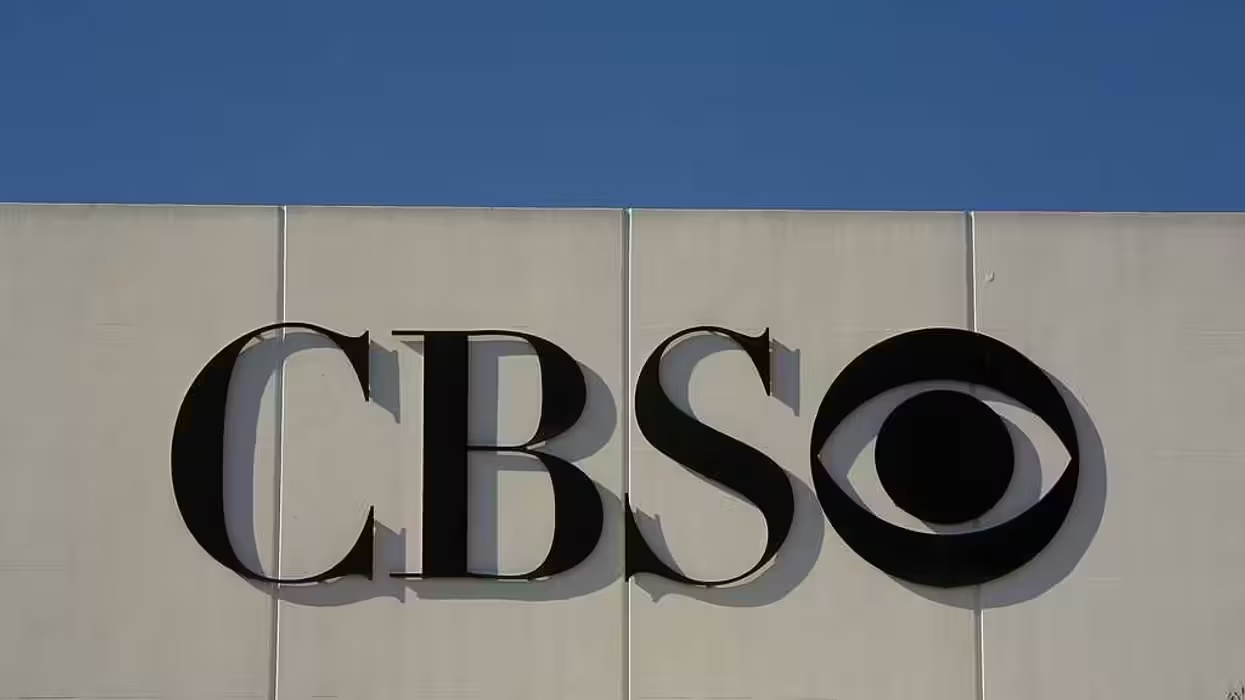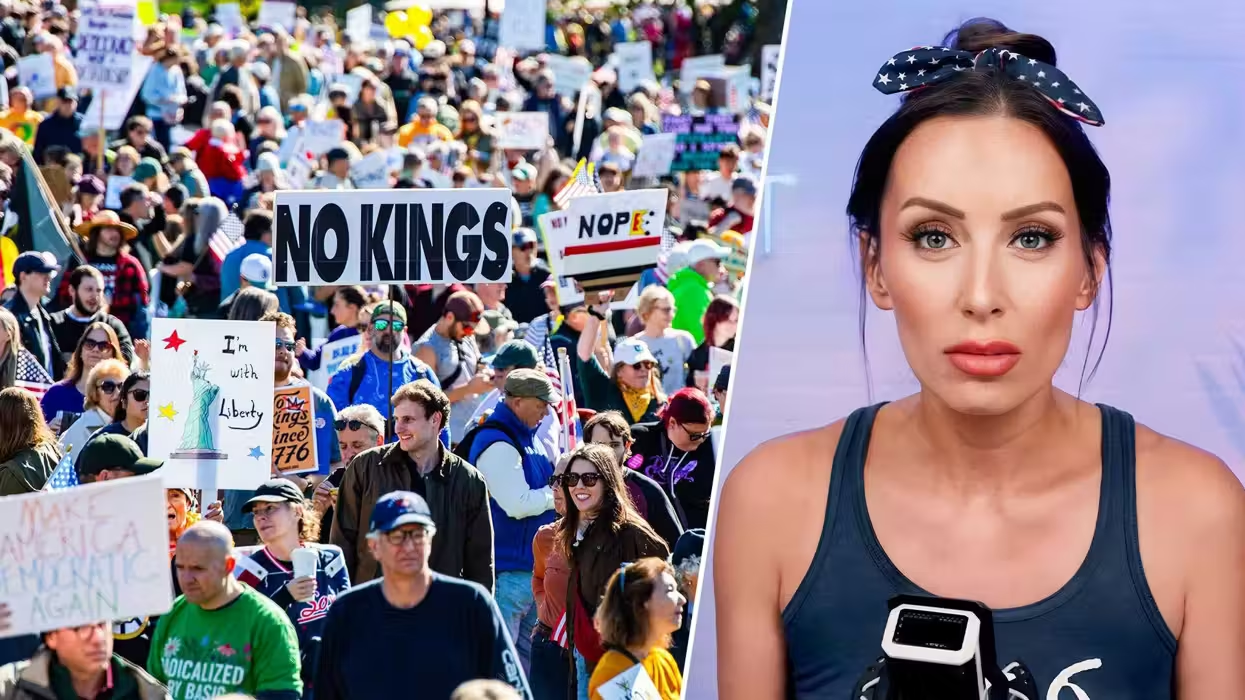
© 2025 Blaze Media LLC. All rights reserved.
Everything You Always Wanted to Know About the 'Fiscal Cliff' (But Were Afraid to Ask)
November 13, 2012
How did it get its name? Why are we even facing one?
 The impending "fiscal cliff," a combination of tax increases and spending cuts that will go into effect in January unless Congress passes a budget deal, will affect everyone who pays income tax (and even some who don't). But are you unsure about exactly what it is? What does it entail? What are the potential consequences? Well, we've compiled everything you need to know.
The impending "fiscal cliff," a combination of tax increases and spending cuts that will go into effect in January unless Congress passes a budget deal, will affect everyone who pays income tax (and even some who don't). But are you unsure about exactly what it is? What does it entail? What are the potential consequences? Well, we've compiled everything you need to know.
--
Here's what we know that you need to know.
First, the name.
While speaking before the House Financial Services Committee in February, Chairman of the U.S. Federal Reserve Ben Bernanke warned that Congress must agree on a budget deal by January 1, 2013, or the U.S. will face a “massive fiscal cliff of large spending cuts and tax increases.” Hence the term "fiscal cliff."
Next, the issues.
At the center of the “fiscal cliff” is the expiration of the Bush-era tax cuts.
You may recall that these tax cuts were originally set to expire at the end of 2010 but were extended through 2012 as part of a deal reached between President Obama and the Republican-controlled House. The deal involved an extension of both the Bush tax cuts and long-term unemployment benefits for out-of-work Americans as well as a one-year reduction in the Social Security employee payroll tax (which Congress ended up extending through 2012).
Then in 2011 there was the infamous debt-ceiling crisis. Democrats wanted to raise the ceiling and Republicans refused. As a result of this fight, Congress passed the Budget Control Act of 2011 which called for the formation of the Joint Select Committee on Deficit Reduction (i.e. the “super committee”) to come up with a plan to deal with the deficit.
Here’s where it gets tricky.
The 2011 Budget Control Act calls for across-the-board spending cuts (also known as “sequestrations”) to defense and domestic programs -- which the CBO puts at about $85 billion -- if the “super committee” fails to come up with a deficit-reduction plan.
Someone thought that spending cuts of this magnitude would help force an agreement. Obviously, that didn't happen.
In short, we're facing these spending cuts and tax increases because Congress couldn’t agree on a deficit-reduction plan and someone had the bright idea of imposing automatic spending cuts if they failed to do so.
 President Obama speaks during a Veterans Day ceremony in Arlington, Va., on Sunday (AP)
President Obama speaks during a Veterans Day ceremony in Arlington, Va., on Sunday (AP)
So let's say Congress fails to heed Bernanke's warning? What then?
Should the U.S. go over the so-called cliff, the economy would be hit so hard that it would likely sink into recession in the first half of 2013, economists say. And no matter who you are, it will be all but impossible to avoid the pain.
Middle income families would have to pay an average of about $2,000 more next year, the nonpartisan Tax Policy Center has calculated.
Up to 3.4 million jobs would be lost, the Congressional Budget Office estimates. The unemployment rate would reach 9.1 percent from the current 7.9 percent. Stocks could plunge. The nonpartisan CBO estimates the total cost of the cliff in 2013 at $671 billion.
Collectively, the tax increases would be the steepest to hit Americans in 60 years when measured as a percentage of the economy. Most of the damage -- roughly two-thirds -- would come from the tax increases. But, as mentioned briefly in the above, spending cuts could cause pain, too.
Hopefully, these numbers force the White House and Congress to agree to a deal before year's end. On Tuesday, Congress returns for a post-election session that could last through Dec. 31. At a minimum, analysts say some temporary compromise might be reached, allowing a final deal to be cut early next year.
Still, uncertainty about a final deal could cause many companies to further delay hiring and spend less. Already, many U.S. companies say anxiety about the fiscal cliff has led them to put off plans to expand or hire.
A breakdown in negotiations could also ignite turmoil in financial markets. It could resemble the 700-point fall in the Dow Jones industrial average in 2008 after the House initially rejected the $700 billion bailout of major banks.
Since President Barack Obama's re-election, nervous investors have sold stocks. The Standard & Poor's 500 index sank 2.3 percent last week, its worst weekly drop since June. The sell-off resulted in part from anxiety over higher tax rates on investment gains once the fiscal cliff kicks in.
Last week, President Obama said he was open to compromise with Republican leaders -- but only they agree to a deal that involves making “millionaire sand billionaires” pay their “fair share.”
Republican House Speaker John Boehner countered that higher tax rates on upper-income Americans would slow job growth. Boehner argued that any deal must reduce tax rates, eliminate special-interest loopholes, and rein in government benefits.
 In this November 2012 file photo House Speaker John Boehner, R-Ohio, talks about the elections and the unfinished business of Congress at the Capitol in Washington (AP)
In this November 2012 file photo House Speaker John Boehner, R-Ohio, talks about the elections and the unfinished business of Congress at the Capitol in Washington (AP)
More than 50 percent of the tax increases would come from the expiration of tax cuts approved in 2001 and 2003 and from additional tax cuts in a 2009 economic stimulus law.
The first set of tax cuts reduced rates on income, investment gains, dividends and estates. They also boosted tax credits for families with children. Deductions for married couples also rose. The 2009 measure increased tax credits for low-income earners and college students.
About 20 percent of the tax increase would come from the expiration of a Social Security tax cut enacted in 2010. This change would cost someone making $50,000 about $1,000 a year, or nearly $20 a week, and a household with two high-paid workers up to $4,500, or nearly $87 a week.
Now it’s important to note that the expiration of the one-year reduction in Social Security employee payroll tax cut isn't technically among the changes triggered by the fiscal cliff. But because it expires at the same time, it's included in most calculations of the fiscal cliff's effects.
An additional 20 percent of the tax increase would come from the end of about 80 tax breaks, mostly for businesses. One is a tax credit for research and development. Another lets companies deduct from their income half the cost of large equipment or machinery.
The rest of the tax increase would come mainly from the alternative minimum tax, or AMT. It would hit 30 million Americans, up from 4 million now.
The costly AMT was designed to prevent the wealthy from exploiting loopholes and deductions to avoid paying income tax. But the AMT wasn't indexed for inflation, so it's increasingly threatened middle-income taxpayers. Congress has acted each year to prevent the AMT from hitting many more people.
Under the fiscal cliff, households in the lowest 20 percent of earners would pay an average of $412 more, according to the Tax Policy Center. The top 20 percent would pay an average $14,000 more, the top 1 percent $121,000 more.
All this would lead many consumers to spend less. Anticipating reduced sales and profits, businesses would likely cut jobs. Others would delay hiring.
And then there are the cuts in spending which, according to the CBO, could total about $85 billion.
Defense spending would shrink 10 percent. Defense Secretary Leon Panetta has said those cuts would cause temporary job losses among civilian Pentagon employees and major defense contractors. Spending on weapons programs would be cut.
For domestic programs, like highway funding, aid to state and local governments and health research, spending would drop about 8 percent. Education grants to states and localities; the FBI and other law enforcement; environmental protection; and air traffic controllers, among others, would also be affected, the White House says.

Hospitals and doctors' offices could also cut jobs if an $11 billion cut in Medicare payments isn't reversed.
Extended unemployment benefits for about 2 million people would end. The extra benefits provide up to 73 weeks of aid.
"It would be nice if we could ... address these issues before the very last moment," said Donald Marron, the Tax Policy Center's director.
Follow Becket Adams (@BecketAdams) on Twitter
The Associated Press contributed to this story. Front page photos courtesy the AP.
Want to leave a tip?
We answer to you. Help keep our content free of advertisers and big tech censorship by leaving a tip today.
Want to join the conversation?
Already a subscriber?
more stories
Sign up for the Blaze newsletter
By signing up, you agree to our Privacy Policy and Terms of Use, and agree to receive content that may sometimes include advertisements. You may opt out at any time.
Related Content
© 2025 Blaze Media LLC. All rights reserved.
Get the stories that matter most delivered directly to your inbox.
By signing up, you agree to our Privacy Policy and Terms of Use, and agree to receive content that may sometimes include advertisements. You may opt out at any time.





